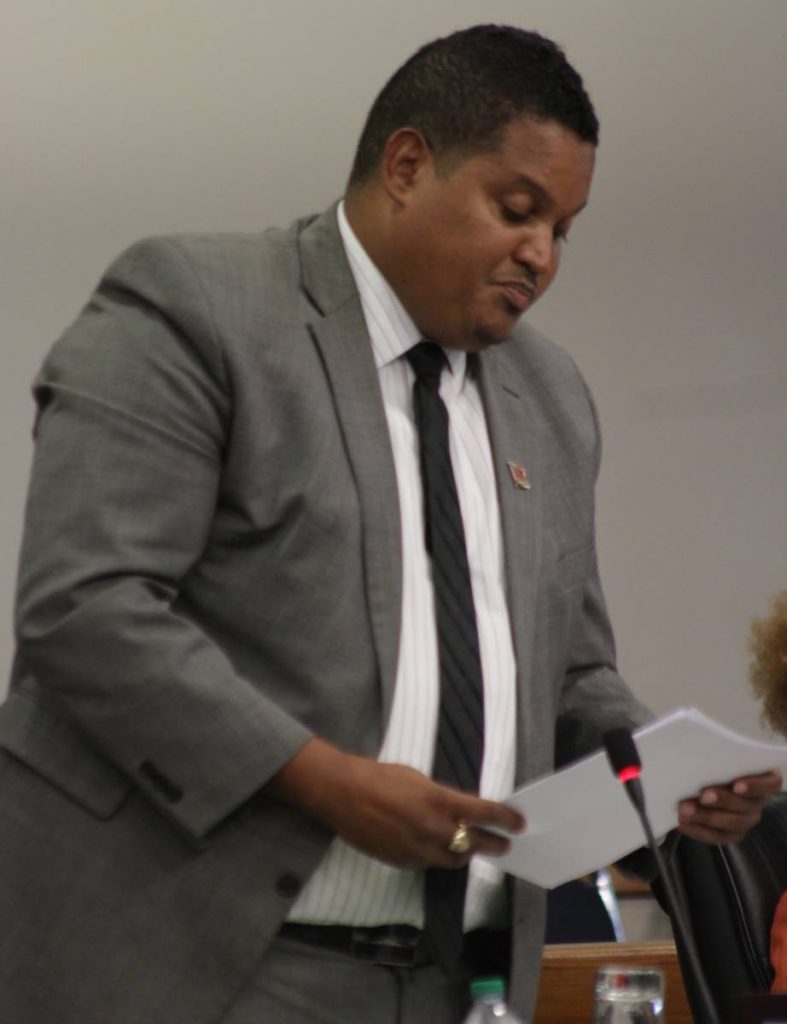National Sports Policy launched in Parliament

JULIEN NEAVES
SPORTS Minister Darryl Smith says the new National Sports Policy will assist in a number of areas, including funding for elite athletes.
He made a statement on the policy in Parliament yesterday, calling it a milestone document.
He said the successful achievement would see increased citizens’ participation in sport and recreational sport activities, an increase in structured programmes for high performance sport, will facilitate the development and enhancement in the preparation of high-performance athletes for high-level competitions and “promote TT as a regional hub for Caribbean sporting as the preferred location for international events, thereby raising our profile and income as a sport tourism destination.”
Princes Town MP Barry Padarath asked if athletes were consulted, as several national sportsmen have said they have received no funding and have publicly dissociated themselves from the Government. Smith said the issues with elite athlete funding had nothing to do with the policy,
“All would know...the financial situation, and we are coping with that.”
He said there had been consultations for the past two years across the length and breadth of this country and after the Olympics in 2016, the ministry hosted a post-mortem with all the athletes and discussed issues including elite athlete funding.
“With this new policy you will see positive changes in the right direction.” He explained the financing of sport is to be addressed in a comprehensive policy which speaks to several funding streams, including some for elite athlete support and athlete development, including at the grassroots level.
He said the country has been without a formal sport policy for most of four years, and the 2002 policy expired in 2012. As part of the development of this new policy, he said, there were reviews, consultations and stakeholder engagement and comparative analysis of sports policies in Commonwealth jurisdictions including Canada, Jamaica, South Africa and Australia, adding that many local sports systems were derivatives of the Australian model.
He noted the policy addressed 13 objective areas, all of which have been identified by stakeholders as key priority areas for the development of sport in TT. These areas were: high performance sport; total participation; capacity-building; administrative reform; financing sport; creating an enabling environment; marketing and communication; and research development and planning.
He said development of sport was about strengthening of infrastructure and the objective areas are: industry and commerce, social development, infrastructure development, national cohesion and national pride, and physical literacy.
The policy also places focus on the employment of core strategies to facilitate the development of the enabling environment to promote successful achievement of policy outcomes. These strategies include: restructuring the operations of the ministry, effecting the transition of the Sport Company (SporTT) to the Sports Commission (SCOTT), adoption of a business-operation focus, adoption of a collaborative culture towards programme development and implementation, development of the requisite legislation and operational guidelines to which national governing bodies and other stakeholders must subscribe, and development of requisite acts, policies and by-laws to enforce policy content as well as to inform industrial standards.
Smith said in an effort to avoid the pitfalls of the 2002 policy, the 2017-2027 policy identified and will rely on the development of a support framework for implementation of the policy.
He explained from 2017 to 2022 there is an action and implementation plan, from 2017 to 2027, policy monitoring and evaluation framework, and from 2017 to 2020, national framework for the development of sport and sport for development.
Smith stressed the monitoring and evaluation framework was critical for the policy.
He also reported, for the first time, a maintenance policy will be tabled as an adjunct to the document to provide guidelines for the country’s $4 billion asset base.

Comments
"National Sports Policy launched in Parliament"